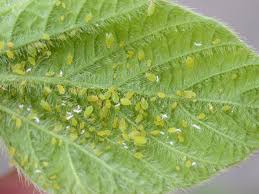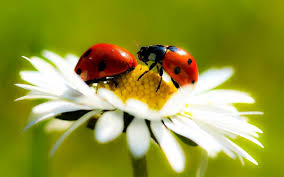Whether you’re an expert gardener or just starting out, chances are, you’ll soon be faced with aphids in your garden. Aphids are one of the most common pests that enter into home gardens. They can cause devastation to plants and flowers fairly quickly, especially younger plants that are more susceptible to disease or dehydration. However, with the right tools, homeowners can be prepared to deal with aphids in their garden quickly and effectively.
Identifying Aphids
Aphids are very small insects that are herbivores, which mean that they can eat a number of common garden plants to survive. They are often green or brown in color, which can make them hard to see on a plant. To many gardeners, aphids may appear to be small specks on the greenest parts of their plants, about the size of a particle of dirt. Aphids love to live in warmer climates, but they can continue to affect gardens in milder climates year-round, as well.
Problems Caused By Aphids
There are a couple of ways in which aphids can be dangerous for garden plants. Aphids use the mouth to cut into the stem and branches of a plant in order to draw out the juicy core and water within the plant. This can lead to dehydration of the attacked plant.

Aphids on a leaf
In addition to causing devastation to young plants and trauma to older plants, aphids can also affect relatively healthy plants. When they cut into multiple plants, they can spread disease from one plant to the next.
When they have completed their meal, aphids also give off a material that can cause various kinds of fungus to grow on the plant. The substance left behind by aphids is also very attractive to ants, bringing additional pests into the garden.
Top Solutions for Dealing with Aphids
In most cases, an infestation of aphids can be removed without resorting to harsh chemicals. Here are some of the best ways to get rid of aphids simply and effectively:
Rinsing your plants well: Aphids don’t tend to cling to plants very tightly. By rinsing the undersides of leaves and spraying down your plants regularly with a simple garden hose, you can remove small numbers of aphids. If an infestation of aphids is just beginning in your garden, this is the first step that you’ll want to take before seeking out other treatments.
Insecticide Soaps: These soaps are fairly mild chemically and can kill the aphids on contact. These soaps are specifically designed to take care of aphids, while preserving your plants and any non-harmful insects in your garden. When applying them, it is important to be very thorough, washing the underside of the leaves and any susceptible plant parts where the aphids may be residing.
Ant Control: Because ants fend off a number of natural predators of aphids, getting rid of ants can often lead to the natural removal of aphids, as well. By purchasing bait or traps for ants and placing them at strategic points in the garden, both the ants and the aphids can be taken care of at once. There are even some great natural treatments for ants, like particular essential oils or vinegar, if you don’t want to use chemical treatments.
Neem Oil: Oils are very effective when applied thoroughly. Like the soaps, oils are only useful when rubbed thoroughly along the main parts of each of the plants in the garden. There is a potential for oils to cause burns on plants in hot weather, so it is important to time the application of neem oil correctly. For homeowners that are using multiple kinds of treatment, neem oil is a great secondary option.

Use ladybugs to get rid of aphids.
Ladybugs: A number of gardening stores offer live ladybugs that can be released into your garden to remove aphids naturally. If you are looking for natural solutions to your aphid infestation, this is a great option for a treatment that is sustainable and friendly to the entire ecosystem that lives in your garden.
While aphids can be a pain to have in a garden, they are actually relatively simple to remove. Homeowners have a number of options that allow varying degrees of involvement and expense, but the great thing is that no harmful chemicals are necessary to get rid of these pests.

No Comments